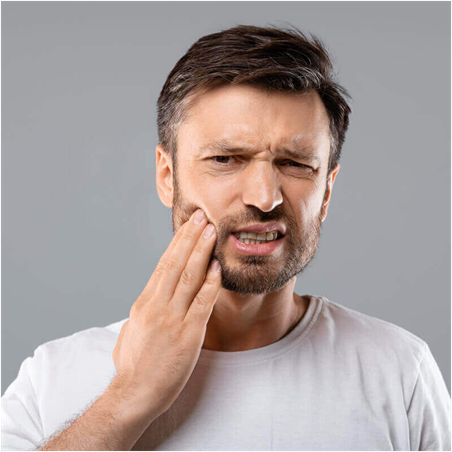Dental injuries can be both physically and emotionally distressing experiences. Whether it’s a chipped tooth, a knocked-out tooth, or any other dental trauma, knowing what to do in such situations is crucial. The steps you take immediately after a dental injury can greatly impact the outcome. This article aims to provide guidance on how to deal with dental trauma, ensuring you have the best chance of preserving your oral health.
- Stay Calm and Assess the Situation
The first and most crucial step when faced with a dental injury is to remain calm. Panicking can make the situation worse and cloud your judgment. Take a moment to assess the extent of the damage:
– If a tooth has been knocked out, try to locate it, as quick action can often save the tooth.
– If it’s a chipped or broken tooth, gather any pieces you can find.
- Contact your Dentist
Once you’ve assessed the situation, the next step is to contact your dentist. Dental emergencies can occur at any time, so it’s essential to have a plan in place for who to call. When you call, explain the situation clearly, and if it’s a knocked-out tooth, inquire if there is any specific guidance on how to preserve the tooth until you reach the dental office.
- Preserve a Knocked-Out Tooth
If you lost a tooth, handling it correctly is crucial. To preserve the tooth until you see the dentist, follow these steps:
– Hold the tooth by the crown (the visible part) and avoid touching the root.
– If the tooth is dirty, gently rinse it with milk or saline solution. Do not scrub it or use soap.
– Place the tooth in a container of milk, saliva, or a tooth preservation solution. If none of these are available, you can also tuck the tooth inside your cheek.
Time is of the essence when dealing with a knocked-out tooth, so aim to see a dentist within 30 minutes to increase the chances of successful re-implantation.
- Manage Pain and Swelling
In cases of dental trauma, you may experience pain and swelling. Over-the-counter pain relievers can help manage the discomfort until you see the dentist. Applying a cold compress to the affected area can also reduce swelling and provide relief.
- Address Chipped or Broken Teeth
For chipped or broken teeth, it’s essential to collect any fragments and keep them in a safe place. This will help your dentist assess the damage and potentially repair or restore the tooth. Avoid eating hard or crunchy foods, as well as exposing the damaged tooth to extreme temperatures, as this can exacerbate the problem.
- Follow the Dentist’s Advice
Once you reach the dentist’s office, they will assess the extent of the dental trauma and recommend appropriate treatment. This may involve restorative procedures like dental bonding, veneers, crowns, or in the case of a knocked-out tooth, re-implantation. To have the best prognosis for the tooth it is critical to listen to the dentist’s advice.
- Preventative Measures
To minimize the risk of dental trauma, especially for individuals who engage in sports or other high-impact activities, consider using a mouthguard. Custom-fit mouthguards offer superior protection and can help prevent injuries to the teeth, lips, and gums. Your dentist can provide guidance on obtaining a suitable mouthguard.
- Regular Dental Checkups
Preventive care is key to maintaining good oral health. Regular dental checkups, typically every six months, can help identify issues early on and address them before they become major problems. Your dentist can also provide advice on maintaining healthy teeth and gums, reducing the risk of dental injuries.
Experiencing a dental injury can be distressing, but knowing the right steps to take can make a significant difference in preserving your oral health and overall well-being. Staying calm, contacting your dentist, and taking appropriate measures to preserve a knocked-out tooth are essential initial steps. Remember to manage pain and swelling, follow your dentist’s advice, and consider preventive measures to reduce the risk of future dental trauma.
If you need to find out how your smile can be restored please contact Collins Road Family Dental at (860) 589-4577.

